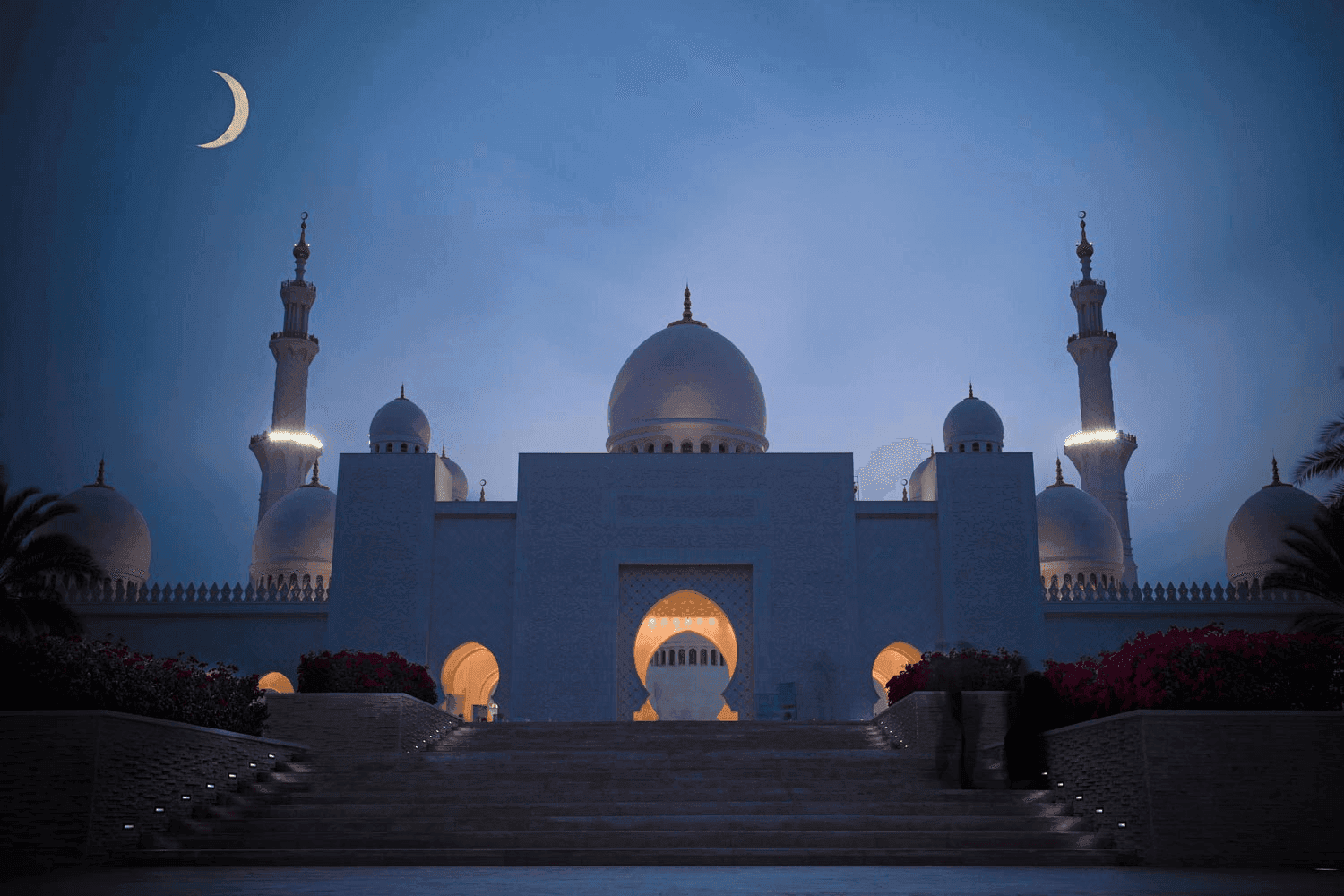Guide to Ramadan 2025 in Dubai

Key takeaways
March in Dubai is not only the usual beach and city vacation but also the incredible atmosphere of one of the most significant holidays in the Muslim world. The whole city is filled with the spirit of Ramadhan: during the day, the colours and sounds of the metropolis become slightly muted, but after sunset, the city blossoms in a special way.
Ramadan Dubai does not just imply some restrictions for tourists, it is also interesting from the point of view of cultural and religious differences. It does not oblige non-Muslims to give up food during the day and certainly not amenities, such as comfortable movement around the city. And here, Trinity Rental offers you more than 80 new models of luxury car rental, all with minimal mileage and without a deposit. There are even 2024 models.
Trinity's fleet includes luxury convertibles, cool SUVs, super-fast sports car and much more. The price for their rental already includes an insurance package, a full tank, VAT, travel on toll roads and 300 km per day without surcharges. Payments are accepted in any form convenient for you — by card, cash, or, if you wish, cryptocurrency.
Order car delivery to any place that is convenient for you, a separate manager works with you throughout the rental, ready to come to the rescue. You no longer need to think about the metro, taxis and buses and moving around the city, the emirate and even to other emirates will become a pleasant adventure for you and not a continuous hassle.
Everything that guests of the emirate love remains available: beaches, shopping centers, excursions, and entertainment. But it is during this Holy Month that travelers have a chance to get to know Dubai from a new side, to touch its culture and traditions.
Understanding Ramadhan
Since Sacred Month follows the Islamic lunar calendar, its dates change every year. So, when is Ramadan in Dubai? In 2025, it runs from March 1 to March 30. The exact start date is officially determined when the crescent moon appears in the sky, marking the beginning of the ninth month of the Islamic calendar. Ramadan UAE lasts 29 or 30 days and ends with the appearance of the next new crescent moon.

Islamic Holy Month is a month of obligatory fasting and one of the five pillars of Islam. During this month, devout Muslims abstain from food and water during the day. According to tradition, the first revelation was sent to the Prophet Muhammad on one of the nights of Ramadan. This is a time of inner reflection. In addition to the usual five-time prayers, many devout Muslims spend several hours in the mosque on these days, praying, reading the Quran, and performing night prayers.
What to Expect in Dubai During Ramadhan?
As Ramadan Dubai approaches, traditional cannon fire begins to ring out across the city to signal the start of the evening meal, or iftar. The customs of the past continue today, with cannons being fired not only in the Expo City Dubai area but also in Madinat Jumeirah and other parts of the city.
In Muslim culture, during the Holy Month, it is important not only to fast from sunrise to sunset but also to do charity and good deeds. But there are no strict restrictions for tourists. On the contrary, malls and restaurants work longer. You can join the celebration during suhoor, the morning meal, or iftars after sunset.
At this time, Dubai hotels transform their restaurants and recreation areas into stylized tents, and you can feel like the hero of a real oriental fairy tale. For example, the legendary Burj Al Arab is organizing a tent for iftar and suhoor for the first time this year, where it will treat visitors to exquisite dishes in a luxurious setting.

The Month of Fasting ends with the Eid al-Fitr holiday, which begins at sunset on the last day of fasting and lasts for two days. After prayer, Muslims hold a large festive dinner and treat not only relatives but also all their friends and acquaintances. With magnificent fireworks displays, large-scale festivities, family festivals, and exclusive concerts, Dubai celebrates it in style.
Experiencing Iftar and Suhoor in Dubai
Two important moments define the daily fasting cycle — suhoor, the pre-dawn meal, and iftar, the time to break the fast after sunset. Iftar and suhoor gatherings unite Dubai’s restaurants, hotels, and traditional Ramadan tents to treat you to lavish buffets with Middle Eastern and international cuisines.
Suhoor helps to maintain energy throughout the day of fasting. It is also encouraged in Islamic teachings as a source of blessing. It is common to eat dates, dairy products, fruits, and whole grains before dawn to maintain energy.
Traditionally, iftar also begins with dates and water, following the example of the Prophet Muhammad (peace be upon him). Dinner is often spent with family and community. Special Fasting Month dishes and buffets are popular during this period in many locations around Dubai.

Cultural Activities and Ramadan Festivities
The central event of Ramadhan in Dubai is traditionally the Hai Ramadan festival, which takes place at Al Wasl Plaza in Expo City Dubai from 5 pm to 1 am. Here you can see national performances, listen to live music, try Middle Eastern cuisine, and witness traditional rituals.
In addition, you can expect to experience:
- night markets;
- many charity events;
- religious observations — visit one of the mosques to see the grandeur of prayer (for example, Jumeirah Mosque and Al Farooq Omar Bin Al Khattab Mosque);
- traditional Hakawati storytelling, folk music, and the famous Al-Ayyala dance.

The Sheikh Mohammed Centre for Cultural Understanding (SMCCU) is a great place to learn about the traditions and history of Dubai. They will tell you about different aspects of life in the emirate, introduce visitors to authentic Middle Eastern cuisine, and conduct master classes and themed excursions, including walking tours of the historic part of Dubai.
Why Ramadhan is a Special Time to Visit Dubai
One of the main arguments of supporters of tourism during the holy month is the almost universal reduction in prices. Hotels are not very busy, so, most often, they offer big discounts. This applies to popular attractions, restaurants, and boutiques.
And if you expect the sea, sun, and good hotel service from a trip to the UAE, tourism at this time is an ideal option for you because most of the restrictions in hotels do not apply, and you will be able to relax to your heart's content, enjoying almost empty beaches, no queues and reduced prices.
Most importantly, remember that it is not necessary to fast, and a trip to Dubai during the Holy Month is an excellent chance to study Muslim culture and traditions.

Ramadan in UAE is not just a time of fasting; it is a period of spiritual reflection, building community ties, and strengthening family bonds. Reduced working hours, school holidays, and modified parking rules are aimed at allowing residents to enjoy the holy month in peace.

FAQ
Is everything in Dubai closed during Ramadhan?
No, but many places and establishments change their opening hours, such as opening later and staying open until midnight. Some bars and nightclubs are open but without loud music or entertainment. Restaurants and cafes may have restrictions on daytime food in closed areas. But after sunset (iftar), Dubai comes alive.
What are Ramadhan dates for 2025?
The Muslim calendar is based on the lunar calendar, so the start and end dates of this holiday change every year. In 2025, the holy month begins on March 1 and ends on March 29. On March 30, believers celebrate the holiday of breaking the fast — Eid al-Fitr.
Are there holidays during the Holy Month in Dubai?
There are no official public holidays during this period in Dubai, but there are special events and traditions such as the evening (iftar) and pre-dawn (suhoor) meals, souks, charity events, and Ramadan Nights. Eid al-Fitr is one of the most significant and joyful Islamic festivals celebrated in the UAE, marking the end of the holy month.
Recent Articles
- Dubai Police Luxury Supercar Fleet: What’s Included & Where to See Them
- Traffic and Radar Cameras in Dubai - Complete Guide
- Best Afternoon Tea in Dubai
- Quranic Park Dubai: A Visitor’s Guide to Faith and Nature
- Dubai Shopping Festival 2025-2026
- Top Luxury Rental Car Services in Dubai in 2025-26
- Top 10 Luxury Cars to Rent in Dubai 2025-26: Prices, Reviews & Booking

